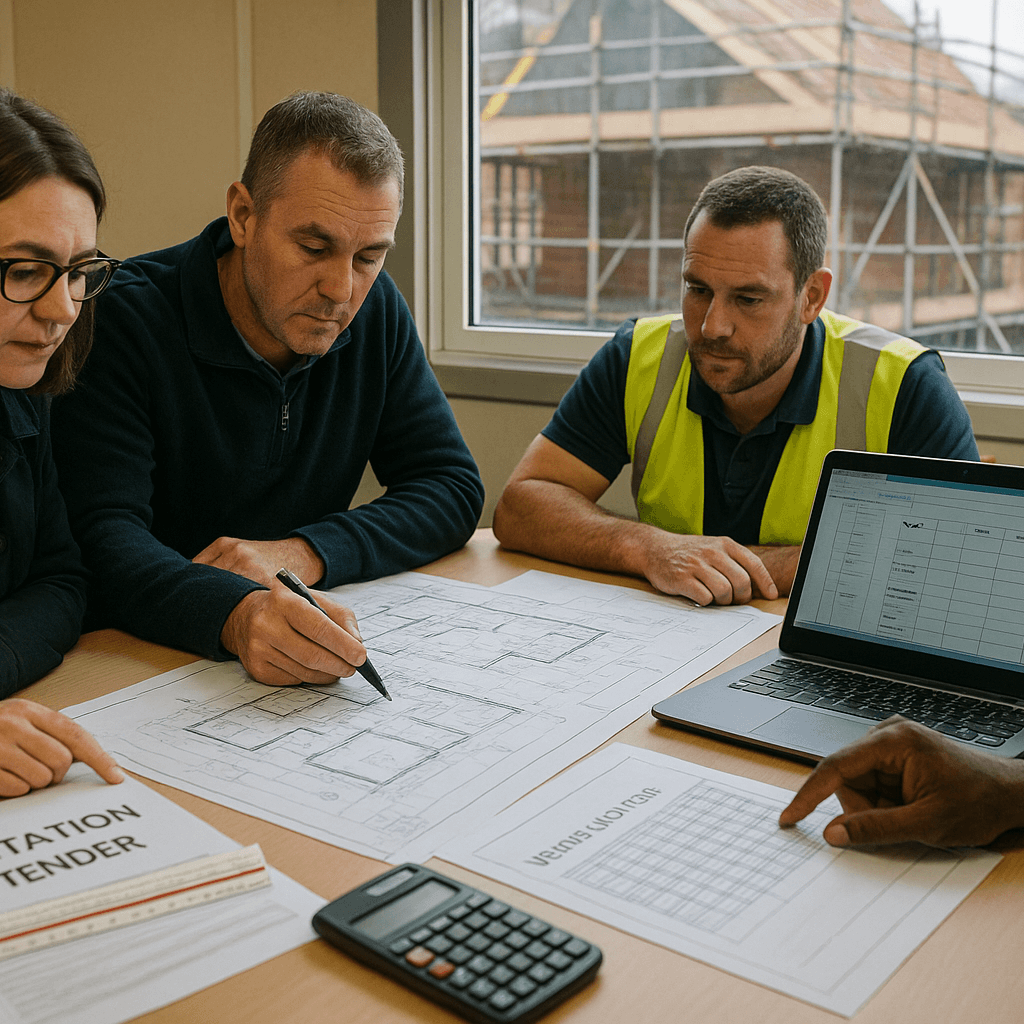Ever wondered what lies behind the grandeur of skyscrapers or the seamless renovation of historic buildings? Beyond the blueprints is the often overlooked yet crucial world of construction budgeting. In a sector where every penny counts and unexpected costs can arise at any moment, managing a budget isn’t just good practice; it’s a foundation for project success, starting with a precise building estimate to guide financial planning.
What is a Construction Budget?
A construction budget is the total sum set aside for a project, covering everything from the initial groundwork to the final stages. Think of it as the financial guide that directs each phase, ensuring that costs remain within the project’s financial limits without sacrificing quality or timelines. Accurately developing a building estimate serves as an essential first step in this process.
The Role of Budgeting in Project Management
So, why is budgeting such an essential part of construction project management? Simply put, it establishes the financial structure that informs all project decisions. A well-constructed budget sets a clear financial course, ensuring there are no unexpected financial surprises down the road and that all stakeholder contributions are effectively allocated.
Best Practices for Creating Effective Construction Budgets
- Start Early and Plan Wisely: Begin budgeting with a comprehensive overview to anticipate all possible financial needs.
- Use Historical Data: Leverage data from past projects to improve budget accuracy.
- Set Up a Solid Contingency Fund: Prepare for unexpected costs by incorporating a robust contingency fund.
- Utilise Technological Tools: Adopt advanced software to monitor and manage budgets in real-time.
- Review Budgets Regularly: Regularly assess and adjust the budget to stay aligned with project progress.
Building Your Construction Budget
1. Define Scope and Objectives
Clear project scope and objectives provide a structured foundation for the budget. Implementing a Work Breakdown Structure (WBS) allows for detailed segmentation, improving budget accuracy.
2. Cost Estimation
Detailed cost estimates are the backbone of a reliable budget. Calculating precise expenses for labour, materials, and equipment ensures the budget accurately reflects real-world demands. Using historical data and advanced budgeting tools further helps to align these estimates with current market trends, making the budget competitive and thorough.
3. Calculating Profit
Profit calculation is more than just subtracting expenses from revenue; it involves strategic planning for cost efficiency throughout the project. This step is vital to determining the financial viability and overall success of the construction project.
Handling Budgeting Challenges
Effective budget management in construction requires foresight, adaptability, and a proactive approach. From addressing misallocated funds to managing unexpected costs, the ability to adjust is key.
Regularly revisiting and adapting the budget to actual project conditions, along with using advanced construction management tools, not only helps avoid cost overruns but also ensures the project adheres to financial limits.
Conclusion: Achieving Financial and Project Success
Construction budgeting goes beyond simply tracking expenses; it requires a strategic mindset that ensures projects are completed on time, within budget, and to high standards. A well-structured budget, starting with an accurate building estimate, is your roadmap to financial success in the construction industry. Ready to take your project planning to the next level?
Frequently Asked Questions
- What is a construction budget? A construction budget is the total amount allocated for all phases of a project, covering all anticipated expenses.
- Why is budgeting essential in construction projects? Budgeting provides a financial framework that guides project decisions, helping ensure projects are completed within financial and time constraints.
- What are the main components of a construction budget? Key components include direct costs, indirect costs, contingency funds, and profit margins.
- How can construction managers keep projects within budget? By using continuous monitoring, construction management software, and adjusting the budget as the project evolves in response to real-time demands.
- What role do contingency funds play in a construction budget? Contingency funds cover unforeseen expenses, providing financial stability and ensuring that unexpected costs don’t derail the project.
- How often should budgets be reviewed in construction projects? Budgets should be reviewed regularly, ideally after major milestones or monthly, to ensure alignment with real expenses and project progress.
- Can technology improve budgeting in construction? Yes, construction management software enhances budgeting accuracy, streamlines processes, and offers real-time financial oversight.
- What common challenges arise with construction budgets? Typical challenges include cost overruns, resource misallocation, and external factors such as fluctuating material costs and regulatory changes.












